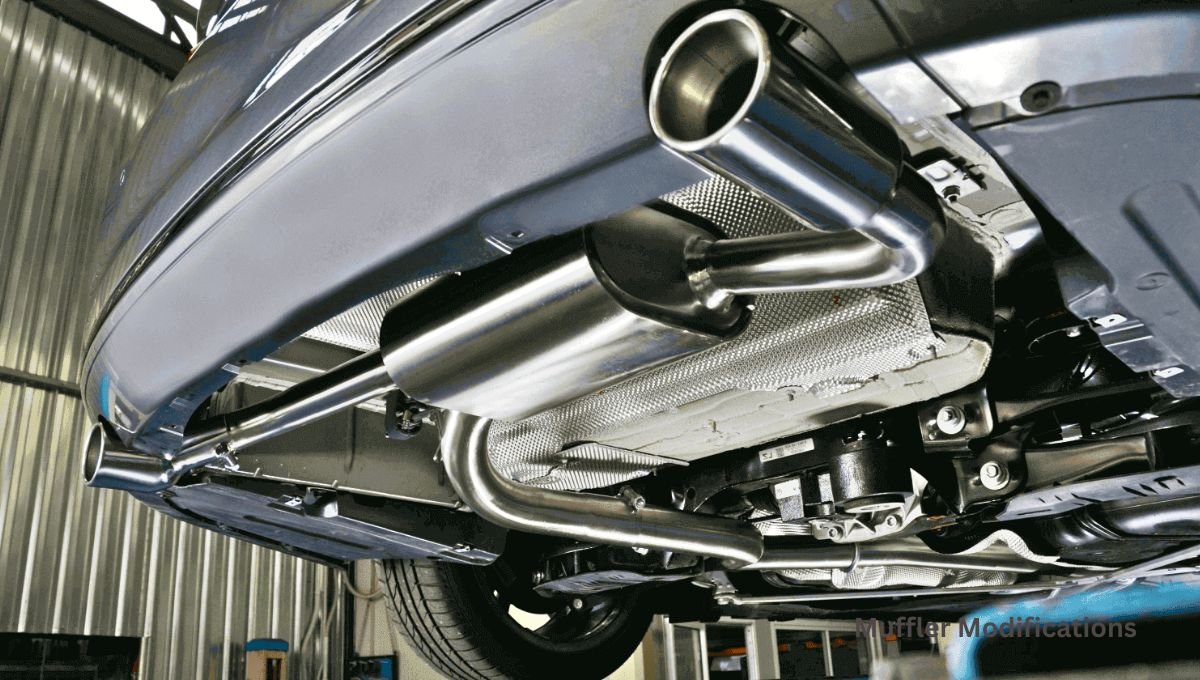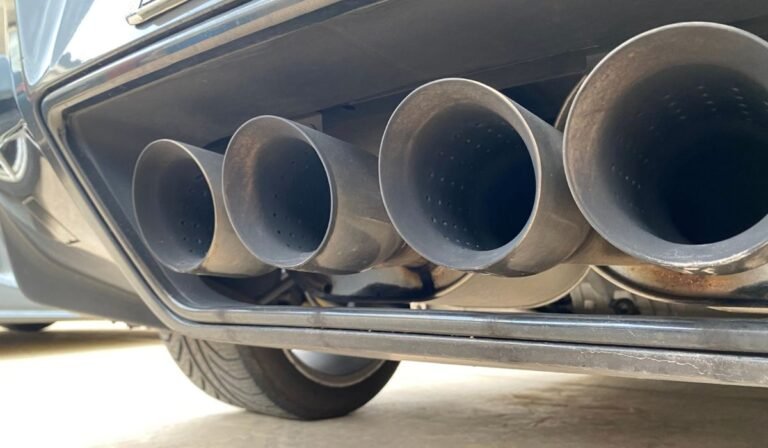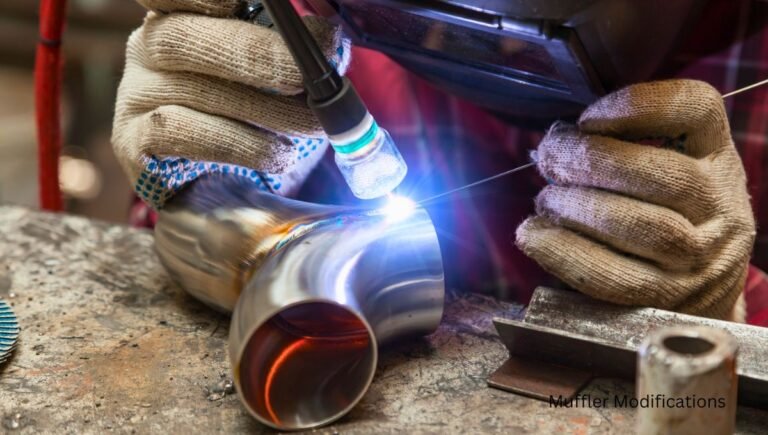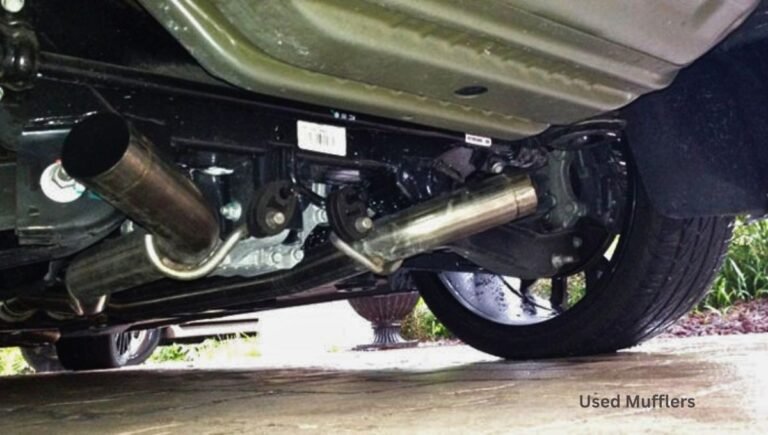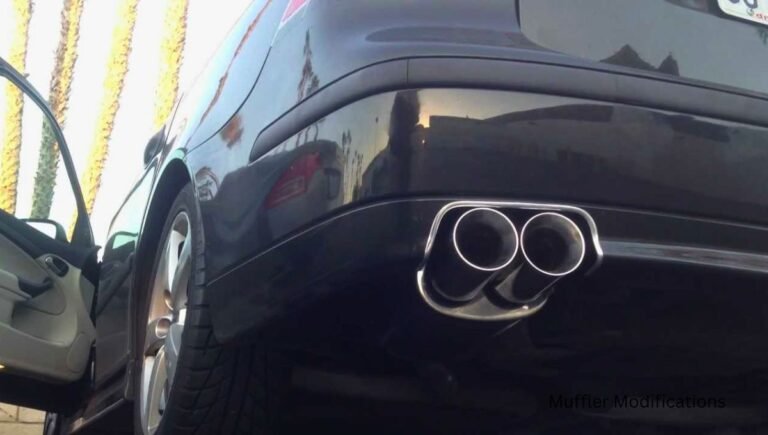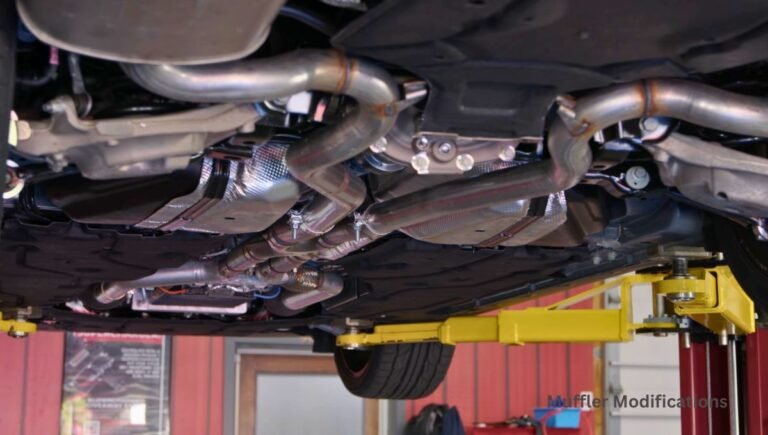Is a Muffler Delete Bad for Your Car? Uncover the Truth!
Muffler Delete can be harmful to your car as it affects the engine performance and noise levels. A muffler delete can lead to increased exhaust noise, reduced back pressure, and potential damage to the engine.
The exhaust system is designed to regulate noise levels and airflow, and altering it can disrupt the balance, causing issues over time. It is important to consider the long-term effects on your vehicle’s performance and overall health before deciding to delete the muffler.
Let’s delve deeper into the potential consequences and alternatives to muffler deletes to ensure your car runs smoothly and efficiently.
Introduction To Muffler Delete
Muffler delete can enhance sound but may impact backpressure and void warranties. Consult a professional for advice.
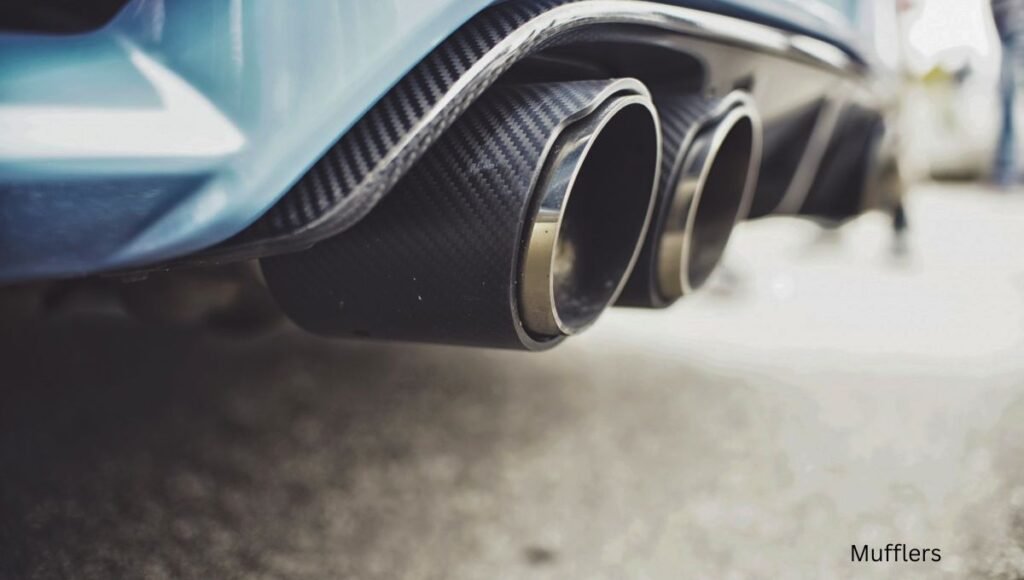
What Is A Muffler Delete?
A muffler delete is a modification that involves removing the muffler from a car’s exhaust system. The muffler is designed to reduce the noise produced by the engine, and its removal can result in a louder and more aggressive exhaust sound. Muffler deletes are popular among car enthusiasts who want to enhance the performance and sound of their vehicles.
Initial Considerations
Before deciding to get a muffler delete, there are a few things to consider. Firstly, muffler deletes are illegal in some states and countries. It’s important to check the local laws and regulations before making any modifications to your car’s exhaust system. Secondly, a muffler delete can affect your car’s performance and fuel efficiency.
The muffler plays a role in the backpressure of the exhaust system, and its removal can result in a loss of torque and horsepower. Finally, a muffler delete can also void your car’s warranty. If you’re still under warranty, it’s best to check with your dealership before making any modifications.
In conclusion, a muffler delete can be an appealing modification for car enthusiasts looking to enhance the sound and performance of their vehicles. However, it’s important to consider the legal, performance, and warranty implications before making any modifications.
Pros Of Muffler Delete
If you are a car enthusiast, you might have heard about the muffler delete mod. A muffler delete is a modification that involves removing the muffler from the exhaust system. While this modification might not be for everyone, it has its own set of advantages. In this article, we will discuss the pros of muffler delete.
Enhanced Engine Sound
One of the most common reasons why car enthusiasts opt for muffler delete is to enhance the engine sound. The muffler is designed to reduce the noise produced by the engine. By removing the muffler, you can hear the engine’s sound more clearly, giving you a sportier and aggressive sound.
The sound produced by the engine varies depending on the type of car and engine. However, it is important to note that some states have noise ordinances, which means that excessively loud exhaust systems are illegal.
Potential Performance Gains
Another advantage of muffler delete is potential performance gains. The muffler is designed to reduce the backpressure in the exhaust system, which can affect the engine’s performance. By removing the muffler, you can improve the exhaust flow, which can increase the horsepower and torque of your car.
However, the performance gains are not significant, and it might not be noticeable in everyday driving.
Improved Aesthetics
Lastly, muffler delete can improve the aesthetics of your car. The muffler is usually the biggest component in the exhaust system, and removing it can improve the look of the car. However, the aesthetics are subjective, and some people might prefer the look of a stock exhaust system.
Overall, muffler delete has its own set of advantages and disadvantages. It is important to note that muffler delete might not be legal in some states, and it can affect the warranty of your car. If you are considering muffler delete, make sure to do your research and consult with a professional mechanic.
Cons Of Muffler Delete
Muffler delete is a popular modification among car enthusiasts, but it comes with several drawbacks. Understanding the cons of muffler delete can help you make an informed decision about whether it’s right for your vehicle.
Increased Noise Levels
One of the primary drawbacks of a muffler delete is the significant increase in noise levels. Removing the muffler allows exhaust gases to exit the vehicle without being muffled, resulting in a louder and more aggressive exhaust note. While some drivers may enjoy the enhanced sound, excessive noise can be disruptive and irritating, especially during everyday driving and in residential areas.
Legal And Environmental Concerns
Another important consideration when contemplating a muffler delete is the potential legal and environmental implications. In many regions, altering the exhaust system in a way that increases noise levels beyond legal limits is prohibited.
Additionally, the removal of the muffler can lead to increased emissions, contributing to air pollution and environmental harm. It’s essential to be aware of local laws and regulations regarding vehicle modifications to avoid fines or penalties.
Impact On Engine Performance
Removing the muffler can impact engine performance negatively. It alters backpressure, leading to reduced torque and horsepower. Additionally, it may affect fuel efficiency and cause potential damage to engine components over time.
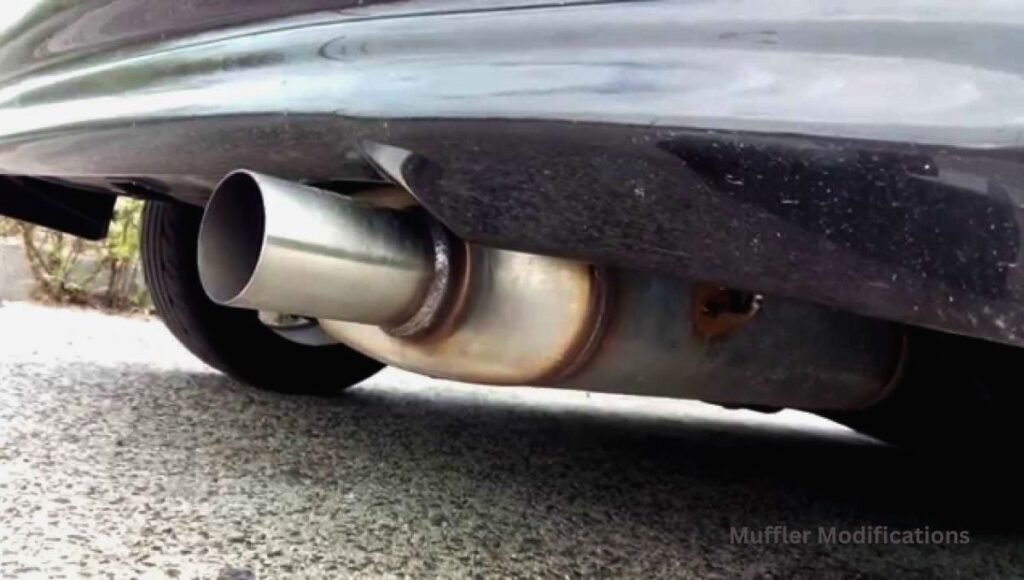
Exhaust Backpressure Changes
When it comes to engine performance, the impact of a muffler delete can be significant. One of the key changes that occur is a modification in exhaust backpressure. Backpressure refers to the resistance encountered by the exhaust gases as they flow through the exhaust system. This resistance is necessary to maintain optimal engine performance, as it helps to ensure proper exhaust gas scavenging and efficient fuel combustion.
However, a muffler delete can disrupt this balance by reducing or eliminating the backpressure in the system. Without the muffler, the exhaust gases can flow more freely, resulting in a decrease in backpressure. While this may seem beneficial at first, it can have adverse effects on engine performance in the long run.
Effects On Engine Efficiency
The decrease in backpressure caused by a muffler delete can have a direct impact on the engine’s efficiency. When the backpressure is reduced, the exhaust gases may flow too quickly through the system, leading to a loss of torque and power. This can result in a decrease in overall engine performance and responsiveness.
Additionally, the change in backpressure can also affect the air-fuel ratio. The exhaust system plays a crucial role in maintaining the proper balance of oxygen and fuel mixture in the engine. When the backpressure is altered, it can disrupt this balance and potentially lead to a lean or rich fuel mixture. This can negatively impact fuel efficiency and emissions, causing the engine to run less efficiently and produce more pollutants.
Overall, while a muffler delete may provide a louder and more aggressive exhaust note, it can have detrimental effects on engine performance and efficiency. It is important to consider these factors before making any modifications to your car’s exhaust system.
Muffler Delete And Emissions
Removing the muffler can impact emissions and may not comply with regulations. A muffler delete could lead to increased noise and may affect the overall performance of your car. It’s important to consider the potential drawbacks before making this modification.
Environmental Regulations
The impact of vehicle emissions on the environment is a growing concern. With stricter environmental regulations in place, it is important to understand the implications of a muffler delete on your car’s emissions.
Emissions from vehicles contribute to air pollution and can have detrimental effects on both human health and the environment. By removing the muffler, you are altering the exhaust system, which plays a crucial role in reducing harmful emissions.
Emissions Testing And Compliance
In many regions, emissions testing is mandatory to ensure compliance with environmental regulations. During emissions testing, your vehicle’s exhaust gases are analyzed to determine the levels of pollutants being emitted. This testing helps authorities identify vehicles that are exceeding the permissible emission limits.
When you delete the muffler, it can significantly impact your vehicle’s emissions. The muffler is designed to reduce noise and also acts as a silencer for the exhaust gases. Without the muffler, the exhaust gases may be released at higher volumes and may contain higher levels of pollutants.
To comply with emissions regulations, it is essential to ensure that your vehicle meets the required emission standards. Removing the muffler can lead to increased emissions, which may result in your car failing emissions tests. This can lead to fines, penalties, or even the inability to legally drive your vehicle.
To summarize, a muffler delete can have a negative impact on your car’s emissions. It can lead to increased pollution and non-compliance with environmental regulations. Therefore, it is important to consider the implications before removing your vehicle’s muffler.
Potential Risks To Your Car
When considering a muffler delete for your car, it’s essential to understand the potential risks involved. Making modifications to your car’s exhaust system can have significant implications for its long-term health, warranty coverage, and resale value.
Long-term Engine Health
A muffler delete can lead to long-term issues with your car’s engine health. By altering the exhaust system, the back pressure and airflow dynamics can be affected, potentially disrupting the engine’s performance and efficiency. This alteration may result in increased wear and tear on engine components, impacting its longevity.
Warranty And Resale Value Implications
Modifying your car’s exhaust system could void the manufacturer’s warranty, leaving you financially vulnerable in the event of any future issues. Additionally, when it comes to resale, potential buyers may be deterred by non-compliant modifications, reducing the overall value of your vehicle.
Alternatives To Muffler Delete
Considering alternatives to muffler delete can help enhance your car’s performance and sound without causing potential issues. Let’s explore some options that can provide similar benefits.
Aftermarket Exhaust Systems
Upgrade your car’s exhaust system with aftermarket options for improved performance and sound quality.
Sound Enhancement Options
Explore various sound enhancement solutions to achieve a more aggressive exhaust note without resorting to a muffler delete.
Making An Informed Decision
When considering a muffler delete for your car, it’s essential to weigh the advantages and drawbacks to make an informed choice.
Balancing Pros And Cons
Pros: Improved exhaust flow, enhanced sound, potential weight reduction.
Cons: Increased noise levels, possible legal issues, impact on engine performance.
Consulting With Automotive Professionals
Benefits: Expert advice, insights on local regulations, maintenance considerations.
Considerations: Cost implications, warranty concerns, long-term effects on the vehicle.
Conclusion
A muffler delete can affect your car’s performance and may lead to legal issues. It’s important to consider the potential drawbacks before making this modification. However, if you decide to proceed, ensure it’s done by a professional to minimize any negative impact on your vehicle.

